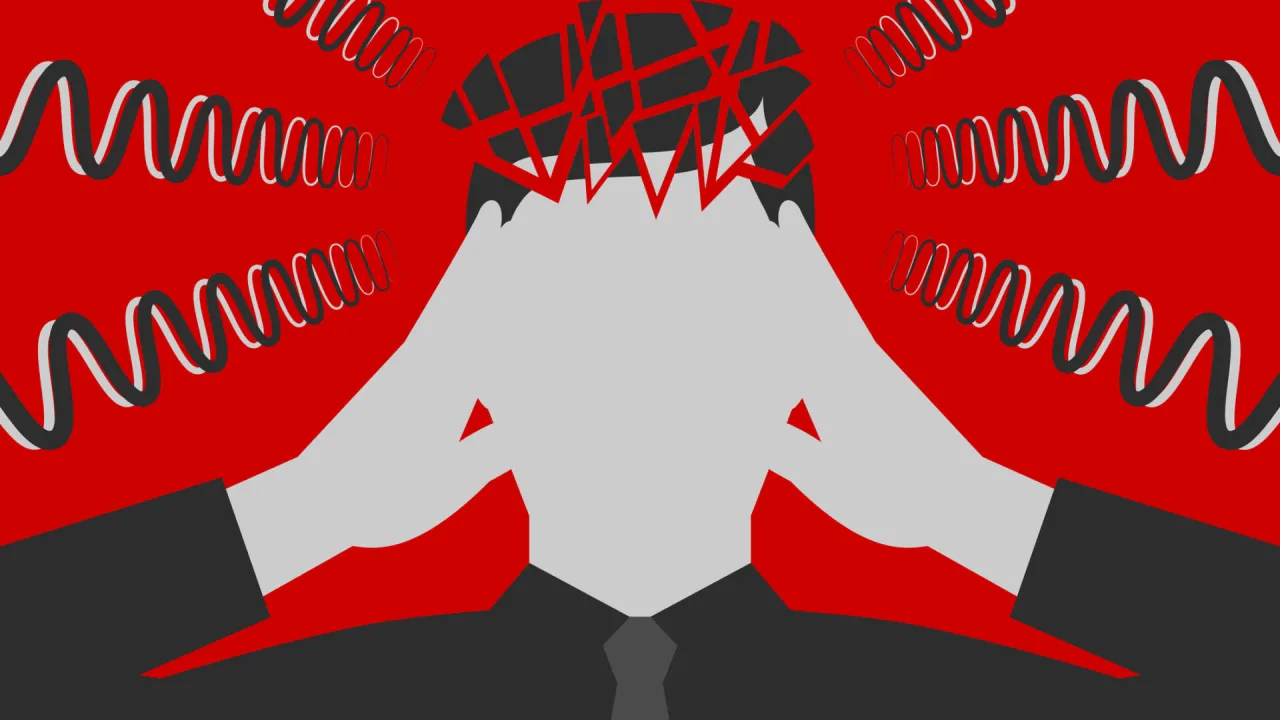Understanding The Link Between Adhd And Anxiety Symptoms And Management Advice
February 2, 2024 - Reading time: 5 minutes

In the intricate dance of the mind, Attention Deficit Hyperactivity Disorder (ADHD) and anxiety often step on each other's toes. It's a common yet complex pairing: up to 50% of adults with ADHD may also wrestle with an anxiety disorder, and 25% might contend with generalized anxiety disorder (GAD). This intertwining can significantly complicate diagnosis, treatment approaches, and everyday functioning. However, understanding the relationship between ADHD and anxiety paves the way for more effective management strategies and a calmer existence.
ADHD and Anxiety: A Complex Duo
"While ADHD contributes symptoms like poor focus, hyperactivity and impulsivity that disrupt rhythms, anxiety brings an added layer of excessive worry, dread, and fear about everyday tasks," explains Michelle Pugle, LCSW, illuminating this prevalent partnership. She highlights that the chaos and inconsistency associated with unmanaged ADHD often becomes fertile ground for anxiety to take root and grow unchecked.
This viewpoint is echoed by Kira Graves, PhD, who underscores the immense stress triggered by ADHD's hallmark lack of emotional and cognitive regulation as a prime trigger for anxiety. "When the ADHD mind cycles rapidly and uncontrollably between thoughts, tasks and stimuli without order, it often activates the body's fight-or-flight response associated with anxiety," elaborates Dr. Graves.
However, while anxiety frequently accompanies ADHD, it can also build resilience against life's challenges. Christina Meyers, PsyD, notes those with ADHD-anxiety combo learn coping strategies like creating to-do lists and finding outlets for nervous energy. "Anxiety's hypervigilance around consequences makes those with ADHD more likely to meet deadlines, thus developing self-discipline," she explains. Hence harnessing anxiety's gifts while minimizing its burdens is key.
Multimodal Treatment Pathways: Navigating the Maze
With ADHD-anxiety, no single approach helps all patients. "The first line of defense often includes ADHD medications such as stimulants and non-stimulants for symptom relief, alongside anti-anxiety agents to ease excessive apprehension," advises Pugle. Yet, it's the blend of medication, cognitive and behavioral therapies (CBT), mindfulness, support groups and lifestyle adjustments that yields the best outcomes for many.
CBT focuses on reframing negative thought patterns while providing emotional coping strategies. Support groups connect people sharing similar struggles. Lifestyle changes aims to bolster resilience by ensuring adequate sleep, nutrition, exercise and stress relief while limiting stimulant use.
Yet, treatment plans remain flexible, given people's varied and changing needs. For instance, stimulants like Adderall, often prescribed for ADHD, may sometimes trigger or worsen anxiety. In such cases, it's vital to collaborate closely with healthcare providers to fine-tune medications and dosages. Finding the optimal approach is often a journey of balancing treatment components based on individual symptoms and responses.
| Treatment Component | Description |
|---|---|
| Medication | - First-line defense includes ADHD medications such as stimulants and non-stimulants for symptom relief. - Stimulants like Adderall, often prescribed for ADHD, may sometimes trigger or worsen anxiety. |
| Anti-anxiety Agents | Used alongside ADHD medications to ease excessive apprehension. |
| Cognitive and Behavioral Therapies (CBT) | - Focuses on reframing negative thought patterns and providing emotional coping strategies. - Effective for comorbid cases, particularly when anxiety disorders are present with ADHD. |
| Mindfulness | Aids in managing symptoms by promoting awareness and acceptance of one's thoughts and feelings. |
| Support Groups | Connect people sharing similar struggles, providing a sense of community and understanding. |
| Lifestyle Adjustments | Aims to bolster resilience by ensuring adequate sleep, nutrition, exercise, and stress relief while limiting stimulant use. |
The table summarizes the various components of multimodal treatment approaches for individuals with ADHD-anxiety, highlighting the importance of a blended approach involving medication, cognitive and behavioral therapies, mindfulness, support groups, and lifestyle adjustments to achieve the best outcomes
Living and Thriving with ADHD and Anxiety: A Balancing Act
Though undoubtedly challenging, adopting positive perspectives and tailored management strategies illuminates a pathway to living fully and meaningfully while balancing ADHD and anxiety. Whether it's through medication, therapy, lifestyle changes or ideally an integrated combination, the journey towards managing this duo is a courageous testament to human resilience, insight and the enduring pursuit of wellness and self-actualization.
"In a complex world that often feels like it's spinning too rapidly for us to catch up, recognizing ADHD-anxiety's double-edged sword and addressing it effectively is crucial for reclaiming a sense of personal power, peace and purpose amid the chaos," aptly concludes Pugle, echoing a sentiment of hope and empowerment for those learning to navigate this intricate dance. With understanding, compassion and grit, integrated treatment unfolds a path for transcending limitations by converting challenges into fuel for growth.

